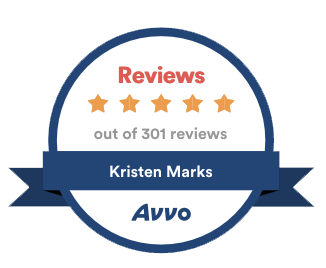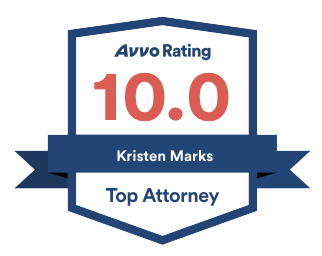Most folks when they think about estate planning think about what’s going to happen to their money and their “stuff” when they pass away. However, for parents of young kids, and especially for parents of special needs children, the concern is making sure their children are protected and taken care of when they are no longer around. Although not exhaustive, here are 5 things at a minimum each parent of a special needs child should do to protect their child:
1. Name a guardian for your child.
- Guardian of Minor
All parents of kids under age 18 should name a legal guardian to care for their children if something should happen to them before their children become adults. I have a free planning guide on my website to help parents choose the best guardian(s) for their kids.
- Guardian Advocate
However, many special needs kids will need a guardian to care for them, manage their finances & make medical decisions for them even after they turn 18 and are legally an adult in the eyes of the law. I frequently work with parents to get them appointed their children’s legal guardian advocate after their disabled child turns 18 to enable those parents to continue to do all of the things and make all of the legal and medical decisions for their children that they’ve done their entire life.
Once appointed guardian advocate, parents should nominate successor guardians for their disabled adult children in their estate planning documents just as they would when their kids were still young, under the age of 18. Alternatively, one can appoint a Standby Guardian ready to step in immediately upon the death of the guardian; or one can have the court appoint a co-guardian to serve simultaneously in which case the surviving guardian will continue to serve as sole guardian upon the death of one of the guardians.
2. Have Your Kids Apply for SSI benefits before age 22
Although I am not a Social Security attorney, I’ve learned enough to be dangerous from my colleagues who practice in this area. Your disabled child may not be eligible for SSI when they still a child (younger than age 18) because SSA will look to the parents’ earnings and assets to determine the child’s eligibility. However, when your disabled child turns 18 and is legally an adult, SSA will then look only to your child’s income and assets in determining SSI eligibility.
If a person is deemed disabled by the SSA prior to age 22, then that disabled child will be eligible to receive SSDI off of his or her parent’s earnings record upon the disability or death of the parent. SSDI benefits can be substantially higher than SSI benefits which is currently capped in 2012 at $698/month for eligible individuals.
3. Prepare a Letter of Intent or written Care Plan for your disabled loved one
A Letter of Intent is a nonbinding document that passes vital information about a person with disabilities to future caregivers. It may include not only information about your child’s benefits and resources but also such things as your child’s medical history & treatment plans, medications, daily care needs, favorite activities, habits, sleeping and eating preferences and many other important aspects of your child’s daily routine, who their doctors are, their list of medications, etc.
While these items may be second nature to you, it is important not to take them for granted. After all, in many cases, your child’s future caregivers assume their role in caring for your child without having actually lived a day in your shoes.
Visit my website today to download my Free Disabled Loved One Organizational Guide.
4. Incorporate a Special Needs Trust for your loved one in your Estate Planning
The last thing we want to do when we pass away is to inadvertently jeopardize our children’s public assistant benefits because of an inheritance we leave to them. Many families don’t know that an inheritance of as little as $2,000 can disqualify someone from public benefits unless the inheritance is paid into what’s called a Special Needs Trust.
Special Needs Trusts, also known as supplemental needs trusts, can be incorporated into your estate plan to hold any funds or property you want to leave to your disabled child without jeopardizing your child’s public assistance benefits. The are discretionary spendthrift trusts [which means the beneficiary’s creditors can’t reach the trust assets] intended to supplement, but not replace, any public benefits the trust beneficiary receives such as SSI, Medicaid & other governmental programs.
The funds of the special needs trust can be used to supplement the beneficiary’s government benefits by paying for services & equipment that Medicaid would not cover, such as the purchase of a home, special wheelchairs, handicap-accessible vans or mechanical beds; as well as pay for vacation, a personal attendant and recreational activities. This type of trust can be tailored to enrich the beneficiary’s life. The trust last for the beneficiary’s lifetime and upon the beneficiary’s death, you have chosen in advance who then inherits any remaining trust assets, such as other descendants or family members.
5. Leave Sufficient Financial Resources for your Child
Many parents of disabled children sacrifice their careers and their life savings to provide for their kids with special needs. Even parents who are financially secure, however, want to ensure that more assets are available for their children with disabilities after they are gone. Many parents purchase life insurance to fund their children’s special needs trusts. Life insurance can provide funds at your death to help pay for caregivers or other resources that can maintain the quality of life for the special needs loved one in your life.
Don’t forget disability insurance too. Statistically we will all become disabled at some point in our lives. If that disability affects our ability to earn an income, this can be devastating to our families, including our disabled loved ones who are dependent upon us and our incomes.
Closing: Remember, planning is not something you do for yourself. It’s something you do for your loved ones because it’s easier for you to take care of things today than it will be for your family & loved ones to take care of things after you’re gone.
I invite you to download my Free Special Needs Planning Guide from my website today.






